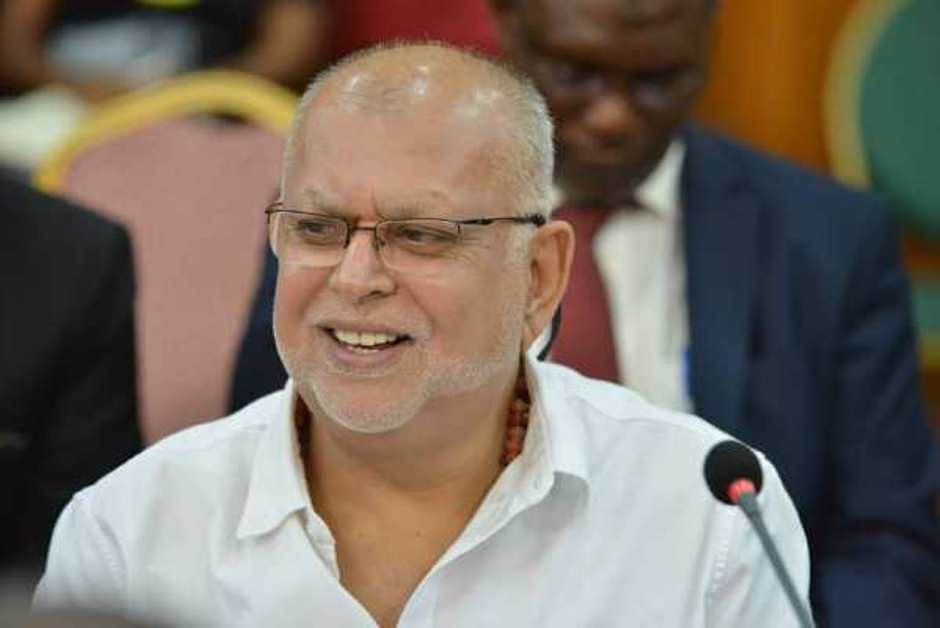The global oil and gas market is evolving, driven by climate and other considerations. However, Africa’s hydrocarbon sector remains crucial to several countries, some of whom are only just becoming players.
For some, it is a major contributor to gross domestic product as well as government revenues, supporting key sectors like health, education and infrastructure. At the micro level, natural gas is increasingly used for electricity and cooking, offering a cleaner alternative to coal, for example. For governments and investors, this presents some difficult choices, as they try to balance economic benefits against climate change obligations and environmental, social, and governance (ESG) commitments.
In the second African Business Energy Series webinar, experts and players in the sector assessed this and other factors relevant to the future of oil and gas in the continent.
They included Her Excellency Linda Scott, High Commissioner and Ambassador of Namibia to the UK, Malta, Greece and Ireland; Dr. Yemi Kale, group chief economist and managing director at African Export-Import Bank; Pedro Omontuemhen, partner and Africa oil and gas leader at PwC and Mike Sangster, senior vice president for Africa at TotalEnergies. The discussion was moderated by David Thomas, editor of African Business.
‘Africa must consider energy security’
Reflecting on Afreximbank’s oil and gas strategy, Kale said the bank seeks to support “the sustainable development of the continent’s energy sector, while at the same time ensuring that African economies can maximise the benefits of their huge hydrocarbon resources.”
He explained that the African Energy Bank, established in collaboration with Africa Petroleum Producers Organization, is a crucial element of this approach, by providing a bridge to close the financing gap created by the withdrawal of traditional international financing for oil and gas projects due to global energy transition pressures.
“By stepping in, we want to ensure that the critical oil and gas infrastructure projects continue to receive funding, particularly in countries that depend on these resources for their growth, energy security and development,” he said.
The bank, Kale further explained, is focused on increasing energy access and security across the continent by financing projects that develop the continent’s vast energy resources. He noted that the bank places strong emphasis on promoting local content development and value addition in the oil and gas sector. This involves financing projects that support refining, petrochemicals, and other downstream activities to reduce reliance on imported refined products.
However, while the bank continues to back oil and gas projects, it is also investing in cleaner technologies, particularly in the natural gas sector, which is seen as a transition fuel. Over the next few decades, Kale said Afeximbank will support a phased transition from a hydrocarbon-dominated energy mix to a more balanced approach.
PwC’s Omontuemhen said that while Africa is committed to decarbonisation, it must take a realistic approach, considering the continent’s current power and energy security situation and the fact that it is the least emitter, accounting for only 3-4% of the global total. The continent, he said, has diverse energy challenges, with North Africa enjoying a more secure energy situation, while sub-Saharan and southern Africa face significant obstacles. Additionally, there are disparities between rural and urban areas in terms of meeting energy needs.
“Our position at PwC is that Africa must use its abundant resources to do the transition. We must go at the pace that makes sense for Africa,” he stressed.
A country like Nigeria, for example, can use its gas resources to support the transition to cleaner forms of energy, while abandoning it would place it and countries like it at risk of severe fiscal consequences.
In response to international capital developing cold feet for hydrocarbon investments, Omontuemhen called for partnerships with financiers in other parts of the world where investors are less reluctant to back such projects. With only 3% of the continent energy secure, Africa must use all available resources.
“Africa must come to the table and discuss its resources and how the world can support it in using the correct resources to transition in line with the rest of the world,” he proposed.
A multinational plans for the future
TotalEnergies’ Mike Sangster highlighted the firm’s commitment to a balanced approach between investing in oil and gas while reducing emissions from these projects, outlining several initiatives aimed at achieving this, such as eliminating flaring, reducing methane emissions, and improving the efficiency of plants and turbines to lower CO2 output. While TotalEnergies continues to develop oil and gas operations, Sangster noted that the company is also heavily investing in electricity, integrated power, and renewables, which is reflected in their global investment strategy.
“Each year, we invest $16-$18bn in all our activities globally, and roughly a third of that investment at the moment is in low carbon energies. We have a little bit less than a third maintaining our existing assets and the other third developing new projects,” he explained.
Africa, Sangster stressed, remains central to TotalEnergies’ production strategy, with its projects in Namibia as well as renewable energy projects in Uganda and Mozambique, including solar and wind ventures already in operation. He stressed that the company aims to maintain a balance between oil and gas and renewables across its global and African operations, leveraging new technologies to boost clean energy production.
“For example, in Nigeria last year, we became the first company to eliminate routine flaring in any of our operations. With new projects, we use a closed flare where the gas that would have been flared in the past can be used for the domestic gas market or for the export market.”
TotalEnergies, he said, currently emits 18kg of CO2 per barrel of oil equivalent produced, with a goal to lower this to 13kg by 2028.
“Each time we launch a new project, the carbon emissions from that project must be lower than the overall average of our portfolio, which means that over time we’ll continue to reduce the carbon emissions,” he explained.
He highlighted the social and economic benefits of these projects, giving the example of Uganda, where he said that 60,000 direct and indirect jobs will be created and $1.2bn invested locally with the Tilenga and EACOP projects.
Namibia’s oil and gas plans
While Namibia is yet to pour first oil, Namibia’s Ambassador Scott emphasised that it is focused on achieving a just transition. She said the country was bequeathed a legal and regulatory regime through its Commonwealth heritage and now seeks to retrofit this framework to ensure that the discovery benefits the wider population. The country also wants to take advantage of the AfCTFA to reach a much larger market than can be found in its own borders. Namibia is also investing in renewable energy, setting up a green hydrogen village and working with international organisations, such as the International Maritime Organization, to make shipping more sustainable, she said.
Scott emphasised Namibia’s commitment to preservation of the environment, which is enshrined in the country’s constitution. “Namibia has the oldest desert on the planet and so everything we do is geared towards protecting our environment and ensuring our commitment to net zero is met,” she stressed.
She explained that companies working in Namibia must adhere to strict environmental regulations, with practices like flaring prohibited to ensure no environmental damage occurs. While the country has robust legal and regulatory frameworks, it is also working to finalise laws around the green hydrogen and petroleum industries.
Noting that Namibia is a young country (34 years old) with a large territory (about the size of Germany and France combined) and a small population (3 million), Scott said there is great room for building new infrastructure including refineries, hydrogen factories, and downstream energy activities, such as cross-border pipelines and grids. While recognising that the energy transition offers exciting prospects for building “a new economy for the planet and for humanity,” Scott argued that there must be multiple allowable tracks.
“You can’t just ask countries like Namibia to stop using fossils because we are only at the beginning of the chain and we want to use all our available resources to develop all the new industries that we can,” she said.
Infrastructure development is another priority. “We’re working with our neighbours to set up one-stop border posts, which will reduce the time that it takes to export products or to bring in products from the ports into landlocked countries or land-linked countries like Zambia and others.”
Lastly, she said Namibia is committed to value addition, ensuring that all new projects, whether in oil, gas, or agriculture, focus on adding local value before exporting products.
Commenting on Namibia’s ambitions for its oil and gas industry, Omontuemhen stressed the importance of learning from other countries that have had the sector for much longer, especially in cases where local expertise is absent.
“You can leverage the experience that Nigeria, Ghana, Algeria and other African countries have, and use that to leapfrog your ambitions,” he advised.
Kale agreed but added that those lessons are important as a guide as to what not to do as much as what to do. He pointed out that Nigeria, Angola and other oil producers had made several unforced errors that new producers must be careful to avoid.
“Understand your local context and then learn from the successes and failures of similar countries around you,” he advised.
Strategic approach needed
Balancing the need to meet global demand for hydrocarbons while also boosting energy access and security on the continent requires African leaders to employ strategic, multifaceted approaches. According to Kale, efficient systems must be developed to convert hydrocarbons, such as Africa’s vast gas reserves, into electricity. For instance, gas-powered thermal plants could play a key role in contributing to the energy grid. Additionally, investments in transmission and distribution networks, particularly in countries like Nigeria, will help ensure that electricity generated from hydrocarbons reaches underserved populations.
It is also important, he argued, to promote regional economic integration through initiatives like the African Continental Free Trade Agreement (AfCFTA).
“This way, African nations can pool their resources and share electricity across borders, which will help optimise hydrocarbons and reduce wastages and inefficiencies,” he argued. As a cleaner hydrocarbon, natural gas can also bridge the gap between traditional oil-based power generation and future renewable energy investments. Prioritising gas-powered energy projects allows African nations to meet electricity needs while also aligning with global climate goals.
Kale also called for public-private partnerships (PPPs) to mobilise capital for hydrocarbon-based power plants. “By encouraging collaboration between governments, development financial institutions like ourselves [Afreximbank] and bringing the private sector onboard, we can mobilise the capital to develop hydrocarbon-based power plants and perhaps extend to exploring gas-to-power projects that could be scaled up across the continent,” he noted.
Kale also proposed more domestic refining and processing of oil and gas, which he said would help lower energy costs, reduce reliance on imports and improve access to affordable electricity, especially for rural and industrial users. Another critical factor is the removal of policy and regulatory barriers, which is necessary to attract private sector participation and investment.
Gas as a transition fuel
On the future of natural gas projects in Africa, Sangster explained that gas could be utilised for power generation, fertiliser production, or mini LNG projects. However, he expressed concerns that the market had not fully capitalised on its potential, emphasising the importance of effective policy and regulation to foster investment in infrastructure and pipelines that would stimulate demand. He affirmed TotalEnergies’ commitment to developing and expanding its gas business in Africa for both export and domestic consumption. He was however less optimistic about boosting refining capacity in Africa.
“There’s a lot of capacity in the market already and refining products is now more of a global market so I think it could be a difficult investment for new players,” he said, adding however, that “I think there’s a lot of scope for value addition with natural gas.”





